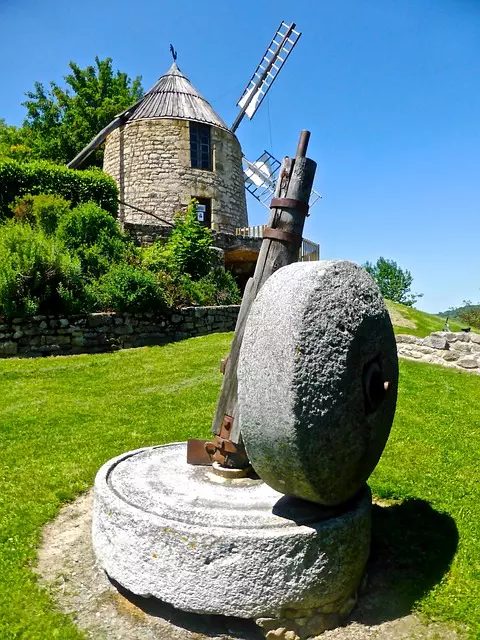The article discusses the environmental advantages of pavement milling and grinding, a sustainable process that recycles old asphalt for use in new road construction, thereby conserving natural resources and reducing greenhouse gas emissions by minimizing the need for virgin materials and cutting down on the environmental impact of extracting and transporting new aggregate. Toledo, Ohio, is highlighted as a city leading the way in this practice, demonstrating how it has successfully integrated pavement milling and grinding into its transportation infrastructure strategy to extend road lifespans and reduce landfill waste through the use of reclaimed asphalt pavement (RAP). Toledo's strict quality control measures ensure that the recycled RAP meets high standards for incorporation into new asphalt mixes, offering cost savings and reinforcing the city's commitment to sustainable construction. This initiative exemplifies how other municipalities can adopt similar environmentally friendly approaches in urban infrastructure management. Pavement milling and grinding in Toledo not only supports sustainability but also serves as a model for efficient waste management and closed-loop recycling within road maintenance and construction.
Exploring the environmental advantages of pavement milling and grinding offers a compelling glimpse into sustainable infrastructure practices. This article delves into the eco-friendly aspects of this process, highlighting its significant role in conservation efforts. From the perspective of Toledo, Ohio, we examine a case study that showcases how this method contributes positively to environmental sustainability. Furthermore, we analyze the long-term environmental impacts of pavement milling and grinding practices, underscoring their benefits in promoting green construction solutions. Join us as we explore the tangible contributions of this innovative approach to maintaining and enhancing our roadways while protecting the planet.
- Eco-Friendly Asphalt Recycling: The Role of Pavement Milling and Grinding in Environmental Conservation
- Case Study: How Pavement Milling and Grinding in Toledo, Ohio, Contributes to Sustainable Infrastructure
- Long-Term Benefits: Assessing the Environmental Impact of Pavement Milling and Grinding Practices
Eco-Friendly Asphalt Recycling: The Role of Pavement Milling and Grinding in Environmental Conservation

Pavement milling and grinding are integral processes in the maintenance and renovation of roadways, which significantly contribute to environmental conservation. These operations involve the removal of the asphalt surface layer from roads or other paved surfaces, which is then recycled and reused in new construction projects. By incorporating pavement millings directly into fresh asphalt mixes, the need for virgin materials is reduced, thereby lessening the environmental impact associated with mining and refining of raw minerals. This practice not only conserves natural resources but also lowers greenhouse gas emissions typically generated from the extraction and transportation of new aggregates.
In Toledo, Ohio, the application of pavement milling and grinding for asphalt recycling is a testament to the city’s commitment to sustainable infrastructure practices. The city’s Department of Transportation has been proactive in utilizing this method, which not only extends the life of existing roadways but also significantly reduces landfill waste. The reclaimed asphalt pavement (RAP) is processed through advanced grinding equipment, ensuring that it meets the quality standards required for its use. This not only facilitates cost savings but also reinforces Toledo’s role as an environmentally conscious city, setting a precedent for other municipalities to follow suit in adopting eco-friendly construction and maintenance methods.
Case Study: How Pavement Milling and Grinding in Toledo, Ohio, Contributes to Sustainable Infrastructure

In recent years, Toledo, Ohio, has undertaken initiatives in pavement milling and grinding as part of its commitment to sustainable infrastructure. This process involves the removal of the surface layer of existing asphalt pavements, which are then recycled into new road surfaces. The environmental benefits of this approach are multifaceted. Firstly, by reutilizing materials from old roads, the practice significantly reduces the need for virgin aggregates, lessening the ecological impact associated with mining and processing new materials. This method not only conserves natural resources but also lowers greenhouse gas emissions typically generated through the production and transportation of fresh asphalt.
Moreover, the milling and grinding process in Toledo contributes to the city’s waste management strategies by diverting construction and demolition debris from landfills. The recycled materials are transformed into high-quality base or binder courses for new road construction, ensuring a continuous loop of material usage that minimizes waste. This closed-loop system not only supports the city’s sustainability goals but also ensures the longevity and structural integrity of the roads, thereby reducing maintenance costs over time. The application of pavement milling and grinding in Toledo exemplifies an innovative approach to urban infrastructure development, highlighting the city’s dedication to environmentally sound construction practices.
Long-Term Benefits: Assessing the Environmental Impact of Pavement Milling and Grinding Practices



